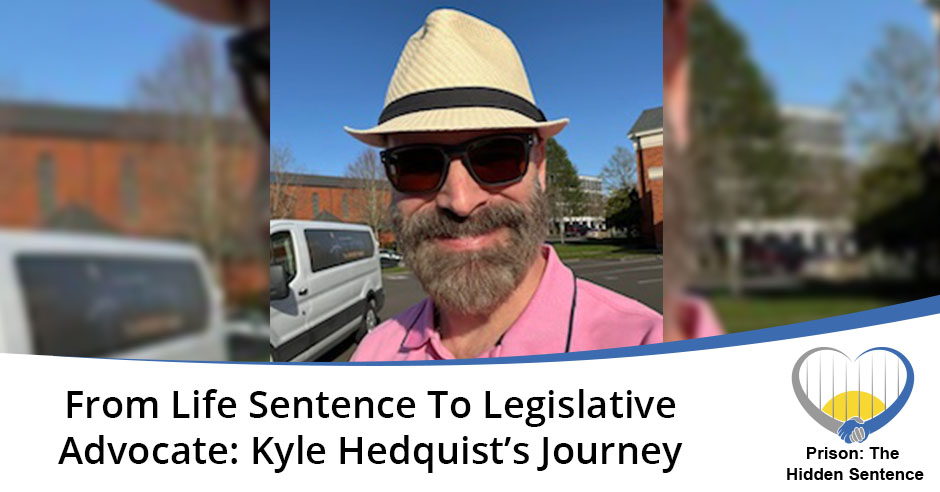
Sentenced to life in prison as a teenager, Kyle Hedquist defied the odds. Hear his incredible journey from a life sentence to freedom and how he’s now driving change in state policy. In 2022, Governor Brown commuted his sentence, and he was released just 20 days later. Now, nearly two years on, Kyle is driving change in state policy with incredible passion. Tune in to hear his inspiring story of resilience, growth, and advocacy. Kyle’s journey is a testament to the power of hope and determination, and it’s a story you won’t want to miss!
—
Listen to the podcast here
From Life Sentence To Legislative Advocate: Kyle Hedquist’s Journey
As most of you have read in previous episodes, I was fortunate to meet the most amazing people at the Connecting 4 Justice conference in Ohio last September 2024. One of those amazing people who turned his life around and is working on improving prison conditions through legislation is Kyle Hedquist. He’s going to share with us his work with the Oregon Justice Resource Center, a nonprofit organization, as well as programming and supporting those affected by the carceral system. Improving the conditions of those who are incarcerated supports the families on the outside so that their loved ones can return to society healthier and have the tools and resources needed for successful reentry into society.
‐‐‐
Welcome, Kyle. It’s so nice to see you again and talk to you.
Thank you. It’s great to be here.
The Oregon Justice Resource Center
It’s a pleasure. I want to start by talking about the Oregon Justice Resource Center. They’re doing great work in the state of Oregon. Could you tell me a little bit more about this organization so our audience can know exactly what it is?
The Oregon Justice Resource Center is based out of Portland, Oregon. It’s a nonprofit law firm that primarily deals with the impacts of incarceration, parole, and probation. They have a group that focuses on incarcerated women. They have another group that focuses on incarcerated juveniles. They have some medical focuses that they do on the medical conditions inside of our carceral systems as well as the Oregon Innocence Project that fights for folks who are innocent to be released, some of them off death row.
The part of the program that I’m with is called Policy and Legislative Outreach. It was developed a few years ago before I was released. The Oregon Justice Resource Center recognized that there are multiple ways to work with a state agency. Some of that is through the laws, courts, and rules. Another way is to initiate policy changes.
The Department of Corrections is a state agency. They are bound by legislative policies. Sometimes, there are issues that are far-reaching in the Carceral system that impact if not all prisoners, male and female included, and that require a legislative or policy change. I started with them about a few years ago after my release. I’ve enjoyed advocating for those who are still incarcerated, many of whom I spent most of my life with, and identifying and working with not only the Department of Corrections but also local politicians to try to figure out what smart legislation looks like and how we can accomplish change. That’s what I do.
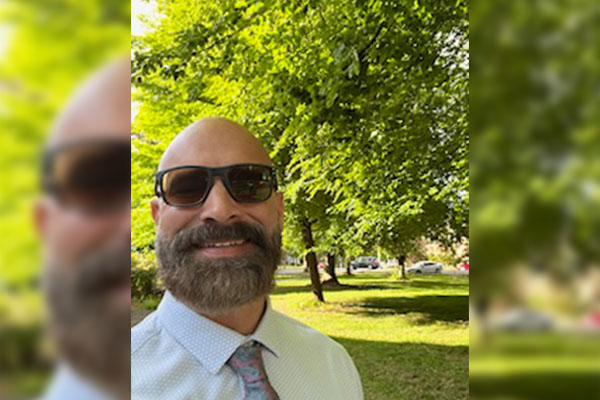
That’s a lot. It’s so important to look at the legislation because there are rules out there that have been there for years that don’t make sense anymore. There are some things that are happening prior to and because of COVID that came to light and showed us how we can improve things. The work that you’re doing is so important and helps a lot of people in the state of Oregon. We’ll talk about this later, but when people read this, they might say, “I’m in the state of Oregon,” or, “My loved one is there.” Maybe you could provide the website or how people would get in touch with your organization.
The full name of the organization is Oregon Justice Resource Center. You can type that into your browser or you can simply type in OJRC.info. Either way, it’ll come up. There’s only one. It’s based out of Portland. It shouldn’t be too difficult to find the website. Either the full name or the acronym OJRC.info.
Thank you. We’ll talk about it later because I usually ask at the end, but I think at this point when you’re talking about all the good work you’re doing, there might be somebody out there reading that’s saying, “How do I get in touch with them?” We’ll put it up here but they can still read the rest of the story because there’s a lot more.
You’re looking at what Oregon is doing. I might be putting you on the spot, but there could be people reading that are like, “I wish there was something like this in my state,” or, “How do I even get started with this?” Do you have any suggestions for people who want to get more involved in their states that aren’t in Oregon?
The only way that real change can happen, whether it’s through policy, legislation, or rule changes, is by the community being involved. That is a place of work that needs to be done by friends, family, and loved ones of those who are incarcerated. We usually know firsthand the conditions that are happening. One thing that’s been really great over the last couple of years is I have been able to travel to conferences. That’s where we met. That was all the way in Ohio. I felt like, and I still feel this way, that every conference I go to, especially outside of the state of Oregon, I realize how many people and how many organizations are doing work.
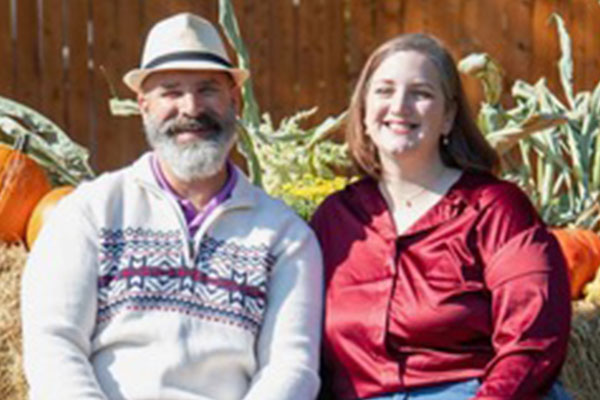
I would encourage anyone reading this, no matter what state or city you’re in, to start googling prison reform and prison coalitions and see what comes up in your local area. I promise you. They’re going to need your voice. They’re going to need you to send out emails to legislators, either for a bill or even against a bill that could harm more people. There’s great work to be done.
I know that there are organizations throughout the United States, even in states you might not think, “They’re pretty conservative on their criminal justice system.” Yet, there are still these small groups of people doing the hard work and always looking for more stories and personal insight that sometimes can only be brought from friends and family of those who are incarcerated.
Aging Population, Female Prisoners, And More
That’s so true. That’s why I wanted you to bring that out. It’s important for anybody who is looking to take a bigger step and a bigger voice. For those people who aren’t ready, they can attend the Prison Families Alliance support groups where they can learn how to advocate for their loved ones if they’re ready to go out there and look for those groups. There are a lot of great groups out there that are doing good work. If you have a story to tell, reach out to me at Prison: The Hidden Sentence. I wanted to keep that out there because I think it’s important. Some of the legislation that you’re working on, I know there are some important impacts that you’re making. Maybe you want to share those.
Some of these are trends that are happening across the United States. The first one I’ll talk about is the aging population. This is happening nationally. There are movements throughout the nation and organizations trying to figure out what to do with the aging population. What I mean by that is traditionally, medical costs or care costs start to go on the rise once someone who is incarcerated gets to the age of 60.
Most prisons are not built for geriatric care or for hospital-type care. There are only a few in the nation that were built specifically to be a hospital. What ends up happening is that people are either going through a disease process like cancer or maybe hepatitis. Maybe they’re not at the point where they’re terminally ill but they need a lot of additional care.
The conversation in Oregon is about how we can create a mechanism that is safe and that allows everyone to have a voice. Most importantly, how can we have this be a primary focus on someone’s medical condition, not necessarily on the amount of time they have left? Maybe that doesn’t matter because they’re not going to live that long, but more so, are they answering the question? Are they a danger to the community? Where would they go?
Are they entitled to veteran benefits, for example? While you’re incarcerated, the state does not get additional money because you’re a veteran. However, if and when you are released, if you are a veteran, your benefits are fully reinstated. Someone might be eligible to live out their remaining months at a veterans hospice or a veteran facility, but because they’re incarcerated, they can’t do that.
We’re trying to work with legislators, and we have for the last couple of years, to find out what works for DOC, what works for the courts, and the process. That’s what legislation is. It is trying to figure out the process so that we can affect these folks. This number is going up for both female and male populations. It’s going to be a pressing issue in the years to come.
I’m really glad that you brought that up, not because it’s a happy topic. We know that people are aging in prisons because of these long sentences. We did talk about hospices in prisons. It was Edgar Barens who did the documentary about the Prison Hospice Project. Don’t quote me, but out of the 1,800 prisons that’s only state and federal, not including jails, only 70 have hospices. That’s something that I know his team is working on. It’s good to hear that other states are also looking at the aging population because we would love to be able to honor our loved ones who are at the end of life and not have them pass in prison.
To bring it up, and I did in Edgar’s episode too, my brother passed in prison. In talking to Edgar, he talked about how for a lot of people who have life sentences, even though they don’t have a hospice, they do take care of people who are at the end of life. My hope is that there are people out there that were taking care of my brother. Thank you for bringing that up. I know you’re working on other legislation too, if you want to share.
Another big chunk of legislation we have specifically deals with our female incarceration population. We only have one prison in Oregon. It went through a review called the GIPA report. It was pretty harsh in its critique of how our female prisoners are being treated. Since we only have one facility, all of the focus is on that facility. We have a package of bills to address the issues that were brought up during that evaluation. It’s a myriad of issues.
We’re trying to create an environment where people come out ready to succeed in society and are healthy both mentally and physically. A lot of the work that we do is really centered around public safety. It’s not trying to change all the laws in the world. It’s not trying to take away resources from law enforcement. It is about thinking about public safety from the standpoint of the folks that are coming out, of which over 95% are returning.
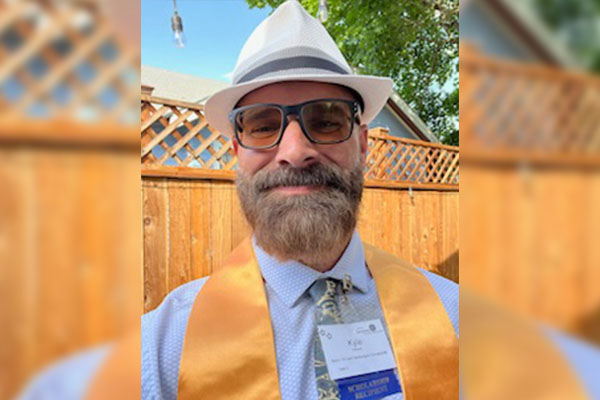
What are they going to be like when they return to your neighborhood? If they’re going to be healthy, contributing, and friendly, then that’s great. That’s what we want. It makes the community and the neighborhood stronger. That’s the ultimate goal. It is to create a sense of safety and a sense of community outside of those prison walls.
That’s so important too, because that’s what people care about. People who are reading that might not have somebody that’s incarcerated or somebody that’s reading is a student or law enforcement. The number one thing is public safety. What you’re saying is that if we can improve the conditions, the programs, and what people who are incarcerated are going through, then it can help them when they are released, when there’s reentry, or when they’re joined with their family. It’s also to be given basic opportunities by society and their communities when they come out and not be stigmatized. People turn their lives around. We’ll talk about that in a minute. Is there any other legislation or anything that you’re working on that you want to share?
We have a few other things in the pot but it’s a little early. Session doesn’t start until 2025. We’ll probably have a few more issues that come up. We were working on solitary confinement limits. We were working on the minimum prosecution age for juveniles, which Oregon does not have. There are a lot of little things that are almost like little tweaks in the rules, but some of our larger things are centered around the aging population and the female population. Those are some of our bigger bill projects.
When I look at your website and the core programs, you’ve got the Civil Rights Project, The FA:IR Law Project, the Immigrant Rights Project, the Oregon Innocence Project, the Women’s Justice Project, and then the Youth Justice Project. Dealing with our youth is so important because if we can catch them before they offend and there are things that we can do with that population, that would be good. For a lot of them, it’s because of their surroundings or being with the wrong people.
When you talk about juveniles, they have the greatest capacity to change in the shortest amount of time because the hope is that they have only made some poor decisions. It’s not a lifestyle choice. It’s more of an impulse. We know that younger people, especially younger men, react to impulse much more than cognitive thought. What we have found is you can turn them around quicker and they can reintegrate into society much easier than someone who has lived a criminal lifestyle for decades. It’s two different things. That’s why it’s so important to deal with juveniles completely differently than dealing with adults. They’re not the same population.
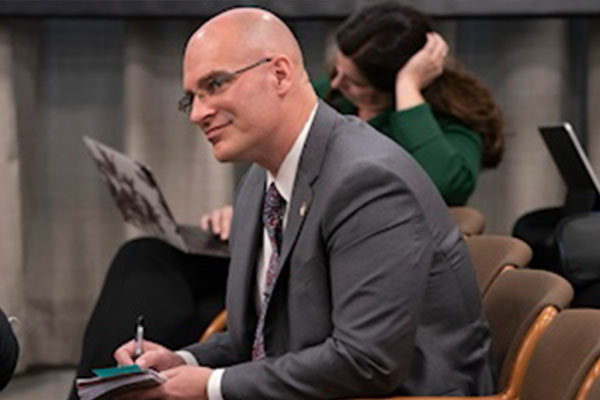
That’s really good to hear because we worry about the youth. That’s positive, good information knowing that it is a little easier. However, you did talk about people who have been involved in crime with their lives or have done long sentences. I know that you had a very long sentence. I want to start with what got you into this work.
Getting Into Prison And Pursuing A New Life
What got me into this work was my subsequent release from Oregon State Penitentiary in 2022. That was the culmination of a lot of work that not only did I do for myself but also for the community of men that I was incarcerated with. I went to prison when I was in high school. Tragically, I made a series of poor decisions that started with an armed robbery and ended with murder. That landed me in the county jail. I turned myself in. I pled guilty. I did not know anything about the criminal justice system. I felt terrible. I thought my life was over.
I was swiftly sentenced to life without parole and sent to the state penitentiary. That was about it. By the time I got there, I was eighteen years old and did not have a clue because this wasn’t a lifestyle choice of mine. It was impulsive. I was surrounded by a lot of people who were making lifestyle choices. I was like, “This is eye-opening.”
Thankfully, I quickly gravitated toward a few men who seemed to be making good choices and started asking them, “What am I supposed to do now?” That was a question that plagued me for a couple of years. I didn’t know what I was supposed to do in prison for the rest of my life. I was like, “If I lived until I’m 70 or 80, am I going to do 50 years in prison and die? Am I going to do 60 years in prison and die?” There was no judicial relief. I had no appeals. I had given up my right to appeal not knowing how the law works. I fell into that life sentence tragically.
I wanted to find out what I could do with my time. I began slowly to get involved with positive programming and trying to surround myself with prisoners who were making better choices. Like society, you have people making good choices and you have people continuing to make bad choices. I did that for a number of years.
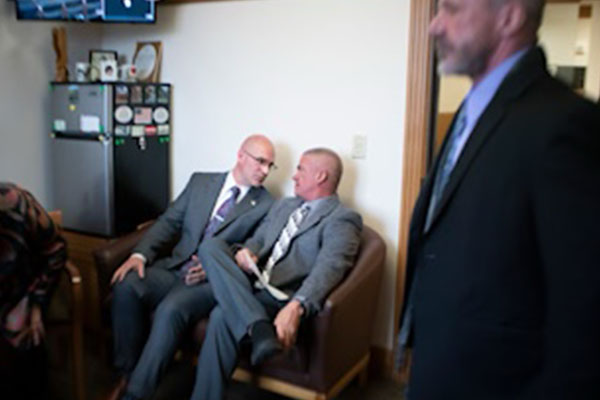
Right around 1999, they started a hospice program. Speaking on what you brought up earlier with hospice, we at OSP started a hospice program, the administration. They went to Angola in Louisiana and brought back a template from that penitentiary system, which we adopted. We then started caring for the dying men of OSP.
I did that for over twenty years. Sometimes, I would do it full-time. Sometimes, I was on call. I was involved with hospice and hospice training for many years and had some very profound experiences both in my own emotional maturity and mental maturity. I was in my twenties. I was 22 when I started doing this work, so my brain was ripe for absorbing this new way of doing time and this new way of living.
I honestly thought this was how I was going to live my life, and then COVID happened. We found out that the governor at the time, Governor Brown, was going to be open to looking at clemencies and possibly commuting people’s sentences. When this started, it was older guys that were susceptible to COVID. We didn’t want all these older folks getting sick. I thought, “I’m taking care of that group but I’m not a part of that group. It’s nothing that applies to me, but good for them.” I knew many of the guys that were getting out that were trying to take advantage of this bad situation and try to get out of prison before they got sick.
A friend of mine said, “Why don’t you apply? You’ve been doing good work.” I had 28 years of being incarcerated. I filled out an application. It took me almost a year and a half, so it was a very long process. There were lots of letters. I had to get letters from the community. I had to get letters from the Department of Corrections. I had to notify the sheriff’s office and the district attorney’s office. It’s a very intensive process held over many months of evaluation. At the end of that, the governor found that I had enough merit to warrant her granting my clemency. I was the second person. It was awesome.
We’re really glad that you’re out here doing the good work. I want to pause for a second. When we started, you said that you were incarcerated for murder. What I want to bring out is that you served 28 years. You had a life sentence. There are some people who may have experienced having somebody murdered or somebody, for whatever reason, believes in the death penalty. I don’t even want to go there. What your story shows is that people can change. People can turn their life around even if they’re incarcerated. You still have remorse. It’s not something that you ever get over. However, by doing good work and giving back, you’re able to turn your life around. Have you had any communication with the family?
No. In Oregon, they have a pretty strict rule. This goes for any crime. An offender cannot reach out to the harmed people. It has to be from the harmed or the impacted folks reaching usually through the district attorney’s office to get in contact with an offender. They’re pretty strict about that. I’m not allowed to reach out, and I haven’t reached out.
You brought out an important issue. It is a fact that if someone is incarcerated, it comes back to what conditions and what programming is happening to rehabilitate or educate those people who are doing time, myself included. I took college classes at the University of Oregon. I participated in multiple different programs. I took advantage of what was in front of me. One advantage that I had was that I was very young, so I was still moldable and impressionable. Since I surrounded myself with adult men who were also trying to do good things, it inherently caused me to do good things. It made me feel better. It made me feel like I had a sense of purpose and like my life could have meaning.
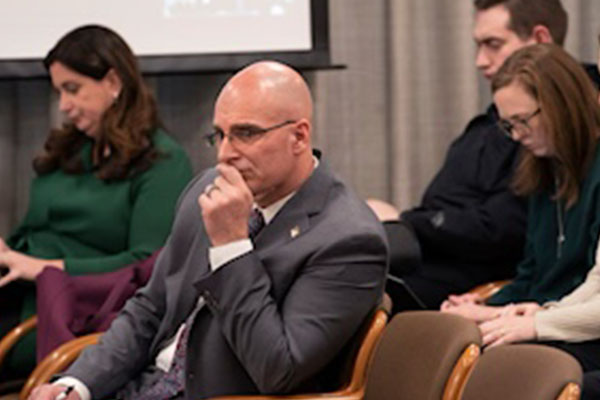
The totality of that is why I’m doing policy work. With your question of, “How did you get involved?” I started advocating a long time ago in prison and then got this unexpected gift. You hoped for it. There were a lot of people who applied but did not get granted clemency. It is a very small number. Getting into this work seemed so natural. It allowed me to take my personal lived experience, the good, the bad, and the ugly, and say, “How can I use my experiences to benefit the system?”
That’s the role that I see my experience playing. It’s not, “We want this, that, or the other thing in the prison system.” It’s more than that. It comes back to, “I want healthy communities in prison because that will result in healthy communities outside of prison.” If we can find a way to make that happen, then let’s do it. It’s going to take policy reform and legislative action, but I’m in for the fight. That’s why I’m doing what I’m doing.
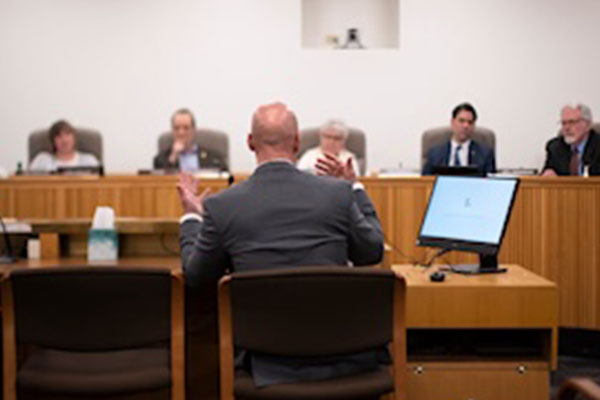
It also takes community understanding because there’s so much going on that people don’t understand if they haven’t been through it. If somebody had somebody that was harmed in their family, there’s forgiveness and understanding. It’s not like the pain goes away. However, it’s what you do with it. I was wondering if the family did reach out to you, would you be willing to talk to them?
Of course.
I had to ask.
I would have no problems with that. I would be more than willing to answer their questions and talk with them. I’m not saying this for myself, but many of the men that I was incarcerated with that were in prison for murder of all kinds, there was almost a desperation element not just to say, “I wish I could go back,” because we can’t go back, but, “I wish that the family knew or had peace with the reason or the circumstance,” or whatever brought about the ultimate death.
I feel like sometimes, in an effort to shield people, you might end up causing more trauma. We talked about it at the conference with restorative justice work and the power that can have not to undo the wrong because you can’t undo it, but what are you supposed to do with it? Restorative justice is a practice that allows both parties to do something with that trauma and to heal from it, through it, and despite it. I’m intrigued with that concept. I’m glad to see that being implemented in more places like schools and elementary schools and trying to make this a more common response.
Sometimes, in an effort to shield people from trauma, we end up causing more trauma. Share on XI agree. If you didn’t bring it up, that’s what I was going to bring up, how important restorative justice is. It’s something that I’ve only learned about in the last couple of years. I have spoken to people who have been through it as the perpetrator or as the person on the other side. One woman in particular that I know talks about forgiveness, how she was able to forgive the perpetrator, and how important that is. Not everybody can do that.
Life After Prison
I’m not saying that everybody should. Everybody’s on their own journey. It was mind-blowing the things that I’ve heard and learned about it. I’m glad you brought that up. 28 years is a long time. It’s hard to imagine. Coming out after 28 years when you went in as a teenager, what, where did you go? Were you in touch with your family? What was that process like? While you were incarcerated, what was your relationship with your family? What was life like when you were released?
My family has been pretty supportive. For those of you that have loved ones and you get to visit together and you make sure you have the right clothes and all that stuff, God bless you. I was that guy. My family would come and visit a couple of times a month. We would sit and talk about programs, school, and classes that I was taking. We got on a fairly routine basis. You go through the stages of trauma and grief where you’re like, “Something’s going to change,” or, “There’s going to be some court change,” but I knew that wasn’t in the cards for me. We moved through some of those stages and started living this type of life. I had fairly good support throughout my incarceration.
The one thing that I was able to accomplish while incarcerated through my internal advocacy work was that I wrote a lot of letters to outside organizations like Partnership for Safety and Justice, ACLU, Disability Rights Oregon, and OJRC. I would ask questions and I would be advocating. I would say, “This is what’s happening. We’re trying to do something different.” What ended up happening was I started having quite a network of support organizations.
What happened when I got out, everyone was hopeful, but you don’t know until you know. I only knew about twenty days before my release. This is during COVID, so the visiting room is not open. There are lots of restrictions going on everywhere. By the time I found out, I was going to be released in twenty days. I’m sending out letters and trying to make phone calls.
When I was released, there were quite a number of people there for my support, which was super helpful. It was very welcoming, but everything was new. I went to prison in 1994 and I got out in 2022. Think of phone technology. They didn’t have mobile phones in 1994. Everything technology-wise was super advanced. I had to get on that learning curve. Luckily, I had enough wits about me and I learned pretty quickly how to navigate most of that stuff.
It was a little intimidating. I felt like people knew who I was, and they didn’t. I thought, “Somebody might think I’m that guy from being on TV,” or, “They’re going to look down upon me.” I realized that most people are living their own lives. They’re looking at their phones. They have no idea who’s around them. Most people didn’t care.
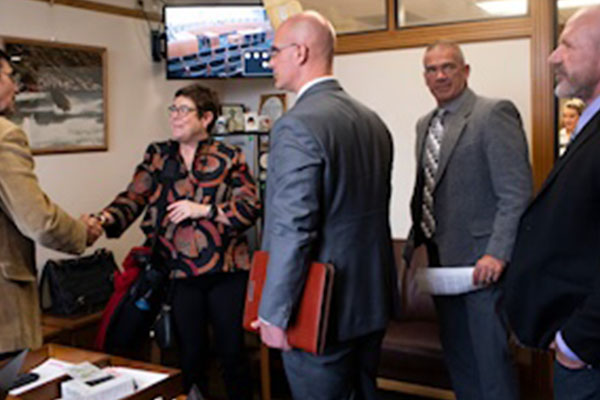
When I first went down to the capitol, I thought, “Some of these folks might not want to talk to me,” or, “They might not like me because of my crime or because I’m an ex-con.” That wasn’t the case. They met with me, talked with me, and listened to me advocate for whatever bills I was trying to advocate for. I felt like some of the things we told ourselves inside weren’t accurate. That’s important because it comes back to the idea of transitioning, reintegration into the community, or rehabilitation.
That’s why the community is so important. People inside need to realize that it’s not like the courtroom where you have people that support you and people that don’t. Society’s not like that. Most people don’t even know who you are. There’s going to be a small fraction of your friends and family and there’s going to be an extreme fringe of people that wish you were dead. Everyone else is in between. More often than not, being kind, nice, and polite goes a long way. It goes a long way in prison, and I found out it goes a long way out here too. My transition has been one of gentleness and kindness and trying to be the best possible community member that I can be.
I am so proud of you for what you’ve been through and how you changed. In a previous episode, we talked about looking at who you were years ago or who’s the same person you were years ago. People change. You’ve taken your situation and given back and are making a change in the world and helping people. There’s no better way to be than to be able to do that. We can’t go backward.
Supporting People Behind Bars
Who knows where you’d be if you hadn’t had this experience? I don’t wish it on anybody. However, you’re doing good work. I know that you do talk to a lot of families. I like to wrap things up with any words of wisdom that you can give to the families out there who are reading about how they can support their loved ones when they’re incarcerated and when they’re released and be a part of and elevate their communities.
One important thing that families can do is even if you can’t visit in person because the prison is very far away, make sure you write letters. Make sure you keep some form of regular communication that’s dependable, even if that’s once a month. That’s something that will keep somebody looking forward to knowing what’s going on with the family. That’s important.
Also, for those family members who might have loved ones serving a long time, there’s a lot of value in having accurate information. I know when I was inside, rumors would spread abundantly about a bill and laws changing. Stay involved. Stay as active as you want to be in the law. What I mean by that is, are there any changes coming? Is the legislation looking at changing this law or that law that may impact your loved one? You can look those up locally through whatever state or whatever city you’re in.
For those who really want to be proactive, make your voice heard. Reach out to your local legislator and say, “These are the conditions. I don’t like this.” Those are powerful voices. I’ve witnessed that myself at the Oregon State Capitol. The impact of letter writing, emailing, and calling your local legislators to support or vote against a bill that could harm your loved ones is powerful.
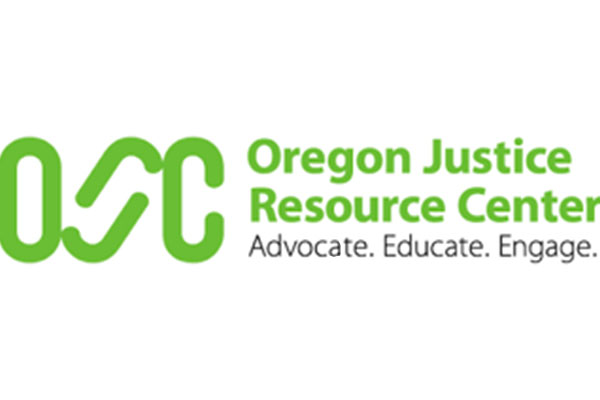
Those individuals that I’ve met doing it that still have loved ones inside, it gives them a sense that they’re in the fight with them. Not only can they relay that good information to their loved one and say, “This is the bill. This is what we’re fighting for,” but they can also say, “I have a meeting set up with my legislator. We’re going to talk about how this is going to impact my family.” That can have a dramatic impact on the loved one because you’re able to do something. You’re empowered. At the same time, the person who’s incarcerated knows that someone’s championing their cause. They’re not forgotten. They’re not lost. There’s hope.
Something that I wonder is if I’m in Nevada and my loved one is incarcerated in Oregon, can I contact an Oregon legislator? How can someone from out of state do anything?
You can reach out to any legislator. Remember, all legislators are public officials. That’s what people have to realize from the gate. All of these people in public office are accessible no matter what state you’re in. I may not talk to him personally, but I could call the governor of New York and talk to somebody. It may be an aide. I might have to get transferred 3 or 4 times. Anyone can reach out to any legislator in any state to advocate for anything.
We’re talking about our loved ones being incarcerated. If you have a loved one incarcerated in another state, research what that state is doing for its incarcerated population. That might bring up agencies that are working similarly to OGRC, the ACLU, or other organizations. Connect with them and say, “I don’t live in the state. I live out of state but my loved one is there.”
I guarantee you. You’re going to be able to email and have phone conversations or write letters in support or against bill measures. That happens quite frequently and it’s very normalized. Every day people don’t realize that they have total and complete access to public officials. It’s the way it is. I’m learning that myself. I empower loved ones to do that.
Episode Wrap-up
That’s really great news. Thank you so much. For anybody who wants to be more active, Kyle has provided some great information. For anybody who needs support, you can attend a Prison Families Alliance meeting and also tune in to the show. We’ve got a lot of resources out there. We share a lot of information. I’m so grateful to be talking to you and sharing this information because people need to know about it.
I personally know some people who have loved ones that are incarcerated in Oregon. I know that there are some good programs there. I was really happy to hear about the hospice program because people don’t realize that until they’ve gone through it, having my brother incarcerated and passing from Hepatitis C in prison and also going through that with my dad going through hospice on the outside. It’s so important. I don’t want to just focus on that, but also all the other good work you’re doing for women’s justice and youth justice and passing some other laws. Do you have any last words before we wrap up?
There’s always hope and there are always possibilities for people to change.
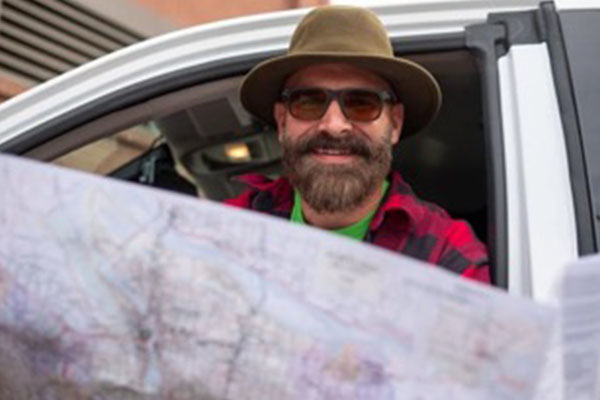
That sounds good. Thank you so much.
Thank you. Take care.
Important Links
- Kyle Hedquist
- Oregon Justice Resource Center
- Prison Families Alliance
- Prison Terminal: Dignity Behind Bars With Filmmaker Edgar Barens
- Paths To Liberation: Breaking The Chains Of Mass Incarceration With Leslie Ann Turner
- Connecting 4 Justice International formally InterNational Prisoners Family Conference
About Kyle Hedquist
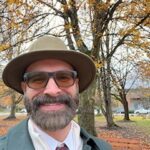 Born in Roseburg, Oregon in 1976 my life was wrought with family pain, alcohol addiction and domestic violence. By the time I was in high school I had little self-identity and very poor self-esteem. Before my graduating year I would be incarcerated at the state prison serving life without parole for Armed Robbery and Aggravated Murder. Thankfully some old-timers took pity and pointed me in the right direction, slowly I would become a change agent within the walls of the state penitentiary. Through advocacy and education, I matured and unknowingly was laying the foundation for my return into society.
Born in Roseburg, Oregon in 1976 my life was wrought with family pain, alcohol addiction and domestic violence. By the time I was in high school I had little self-identity and very poor self-esteem. Before my graduating year I would be incarcerated at the state prison serving life without parole for Armed Robbery and Aggravated Murder. Thankfully some old-timers took pity and pointed me in the right direction, slowly I would become a change agent within the walls of the state penitentiary. Through advocacy and education, I matured and unknowingly was laying the foundation for my return into society.
I now work with the Oregon Justice Resource Center as a policy and legislative outreach associate. I continue to advocate for policy changes within the Oregon Department of Corrections to ultimately make our communities safer.
Love the show? Subscribe, rate, review, and share!
Join the Prison: The Hidden Sentence Community today:

Leave a Reply